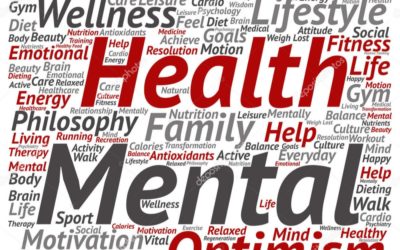Stress
Stress
Stress is a normal reaction of the body when changes occur. The body can respond to these changes physically, mentally, or emotionally.
What is Stress?
Stress is the reaction and response of the body to the changes that require adjustment or response. Stress is a normal part of life and can happen to everyone irrespective of caste, gender, age, profession, race, nationality, etc. The body responses to such changes physically, emotionally, mentally. Stress not only occurs due to negative changes but also causes due to positive changes such as promotion, childbirth, mortgage, etc.
Stress isn’t a psychiatric diagnosis, but it’s closely linked to your mental health in two important ways: Stress can cause mental health problems and make existing problems worse.
For example, if you often struggle to manage feelings of stress, you might develop a mental health problem like anxiety or depression.
Classification of Stress:
Biology: An organism’s response to a stressor such as an environmental condition is called biological stress.
Linguistics: Linguistics stress is relative emphasis or prominence given to a syllable in a word, or to a word in a phrase or sentence.
Mechanics: The internal forces that neighbouring particles of a continuous material exert on each other is termed as mechanics stress.
Occupation: Stress related to one’s job, business or profession is known as occupational stress.
Surgical: Stress occurred due to surgery or surgical injury is surgical stress.
Psychological: A feeling of strain, pressure and tension is a psychological stress. It varies from person to person.
Types of Stress:
Stress can mainly be classified into three types:
1) Acute Stress:
A body’s immediate reaction to challenges, event and demands are called acute stress. It’s the most common type of stress. In acute stress, a body triggers your fight-or-flight response. Acute stress is one of the least damaging types of stress. We experience acute stress multiple times throughout the day. Acute stress is experienced as an immediate perceived threat, physical, emotional or psychological.
Acute stress is short-term stress. Chronic stress is long-term stress. Examples of acute stress would be any stress you suffer from for a short period of time, like a traffic jam, an argument with your spouse or colleague, criticism from your boss or someone breaking into your house when you are absent.
Acute stress isn’t always negative. Having a rollercoaster ride, or visit with your friends to a so-called haunted house, or a night trek can get you acute stress in the form of excitement. Such stresses are good as further they can help you in coping with serious stress disorders. Severe acute stress such as stress suffered as the victim of a crime or life-threatening situation can lead to mental health problems, such as post-traumatic stress disorder or acute stress disorder.
2) Episodic Acute Stress:
Frequently occurring acute stress is called episodic acute stress. People who seem to have a crisis have a chance of becoming an episodic acute stress victim. Normally, such people are short-tempered, anxious and irritable. People who are a pessimist or see the negative sides of everything tend to have episodic acute stress.
Negative health effects are persistent in people with episodic acute stress. It may be hard for people with this type of stress to change their lifestyle, as they accept stress as an inevitable part of life. People with this kind of stress will oftentimes take on more than one responsibilities and projects than they can handle. They may seem like they’re constantly in a rush, always running late and are disorganized.
3) Chronic Stress:
Chronic stress is the response to emotional pressure suffered for a prolonged period of time in which an individual perceives they have little or no control. It involves an endocrine system response in which corticosteroids are released.
Chronic stress can cause due to:
- Poverty
- Dysfunctional family
- An unhappy marriage
- Bad job
- Overall stressful life
The causes of chronic stress vary from person to person. Chronic stress can be detrimental to your health, as it can contribute to several serious diseases or health risks, such as:
- Heart disease
- Cancer
- Lung disease
- Accidents
- Cirrhosis of the liver
- Suicide
Effects of Stress on a human body:
Indeed, stress symptoms can affect your body your thoughts and feelings and your behaviour. Recognizing stress symptoms can help you manage it. Ignoring or stress left unchecked leads to various health problems such as high blood pressure, heart disease, obesity and diabetes.
Effects of Stress on a Body:
- Headache
- Muscle tension
- Chest pain
- Severe tiredness or fatigue
- Change in sex drive
- Stomach upset
- Appetite fluctuations
- Sleep disturbances (Oversleeping or Insomnia)
Effects of Stress on Mind/Mood:
- Anxiety
- Restlessness
- Lack of motivation
- Lack of concentrating
- Feeling overwhelmed
- Consistently getting angry or irritated
- Negative thoughts
- Sadness or depression
Effects on your behaviour:
- Overeating or under eating
- Angry outbursts
- Addiction- Drugs, Alcohol, etc.
- Tobacco use
- Social withdrawal
- Exercising less often
Myths about Stress:
1) “Stress is the same for everyone”
No, it’s not true at all. We all experience different levels of stress. It’s different for everybody and fluctuates from person to person. You may be stressed out by a high-pressure job, while your co-worker thrives on it.
2) “Stress is always bad”
We all have the mentality that no stress would lead us to happiness and health, but it’s not true. A little stress balances life. The important thing is how we handle and manage it.
3) ”Wherever you go, you’ll find stress and nothing can be done about it”
It’s true that stress is everywhere, but it’s not the thing that you can do nothing about it. Proper management and strategy will help you relieve any sort of stress.
4) ”Popular stress management techniques are the best”
Stress management techniques vary from person to person. Everyone has their own kind of stress and tension in their life. So, the stress management techniques depend upon the situation and condition of a concerned person. A comprehensive stress management program tailored to your unique needs works the best.
5) “No Symptoms, no stress”
Although stress comes under the category of a psychological disorder, it’s not necessary that you aren’t stressed because you don’t see particular symptoms. Symptoms may not show, but physical signs clearly indicate you are stressed. These physical signals could be irritating every now and then, being anxious, short-tempered, run-down or short of breath. Feeling overwhelmed, disorganized and having difficulty concentrating are frequent mental signs of stress.
Treatment for Stress
Stress affects each person differently. The treatment may vary according to the condition and type of stress an individual is facing. Stress is certainly curable. Excessive stress can be cured through ‘stress management counselling near me’ or stress management therapy. You are trying your best to reduce stress; still, you are not fulfilled with the expected results, it is better to see a local therapist for stress or stress management therapist near me.
Counselling for stress and depression or stress treatment psychology helps you in meeting the best professionals in this field that assist you better in adopting the best and effective methods to demolish stress. Counselling for stress problems depends upon the person’s condition. But stress management and counselling sessions are certainly effective. They not help you in tackling stress but also in living a fresher, better and healthier life.
Tips to Reduce Stress:
- Keep a positive attitude.
- Accept that there are events that you cannot control.
- Be assertive instead of aggressive. Assert your feelings, opinions, or beliefs instead of becoming angry, defensive, or passive.
- Learn and practice relaxation techniques; try meditation, yoga.
- Exercise regularly. Your body can fight stress better when it is fit.
- Eat healthy, well-balanced meals.
- Learn to manage your time more effectively.
- Set limits appropriately and say clearly no to requests that would create excessive stress in your life.
- Make time for hobbies and interests.
- Get enough rest and sleep. Your body needs time to recover from stressful events.
- Don’t rely on alcohol, drugs, or compulsive behaviours to reduce stress.
- Seek out social support. Spend enough time with those you love.
- Seek treatment with a stress management therapist or stress treatment psychologist other mental health professionals trained in stress management or biofeedback techniques to learn more healthy ways of dealing with the stress in your life.
Where to find Psychological Stress treatment?
You can use our hassle-free Search Licensed Psychologist directory for ‘stress and anxiety counselling near me.’ Find the best stress and anxiety management, post traumatic stress disorder counselling techniques. Enjoy the benefits of all licensed and trusted psychologists of all specifications or as per your needs.
Related Blogs
Mental Health: Why Our Brains Need Sleep?
A healthy body requires a healthy mind. And sleep is an essential part of mind health. Lack of sleep negatively affects decision making, learning, memory and driving ability. Millions of people don’t get enough sleep. Here we at Psychologie India help you to improve...
How Does Alcohol Affect Your Health and Wellbeing?
If you're struggling from alcohol addiction you may feel like there's no way out! But the addiction recovery is possible! Yes, you read right! Addiction recovery is possible. Alcohol addiction or Alcoholism includes consistently drinking alcohol, often to excess, and...
Stress and Women’s Mental Health
There are many causes of stress. Men and women share many of the similar causes of stress, such as money matters, loss in business, job security, health issues, and relationship issues. Perhaps a little more distinctive to women is the many roles they take on, in...
Workplace Stress: Impacts and Interventions
Are you facing with anxiety, depression, mental stress, frustration, burnout, or bullying at workplace? There are ways to deal with a toxic workplace, ease the mental stress of remote working, ease the depression due to work pressure and improve your work-life...
How Counselling Therapists near you can help after a breakup
Breakup is probably an inevitable part of every individual’s life. Breakups are the hardest to digest. Some people may move on quickly, but in some cases, a person may feel angry, bitter, sad or depressed. It’s a life disturbing act as it has deep impacts. The finish...
8 Important Tips to Overcome Exam Stress
A little stress is useful. It pushes you to work harder and better. But, excess stress, especially during the exam, can become a hell of a life. According to 2015 data from the National Crime Records Bureau, 8934 (6.7% of all suicides) students are committing suicide...
How to Overcome Stress?
What is Stress? In a medical or biological context stress is a physical, mental, or emotional factor that causes bodily or mental tension. Stresses can be external from the environment, psychological, or social situations or internal which may be illness, or from a...
What are you waiting for?
You can’t change the past, but by working together with a counselor, you will understand and resolve challenges in your life. Contact a counselor for relieving emotional distress and other cognitive health issues for a better tomorrow.














